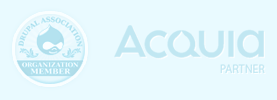Category
Online MarketingSocial Media – Doing It Wrong Is Worse Than Not Doing It At All
In recent years there has been a groundswell of opinion that for a business to be successful online it needs to “be on Facebook” or, sometimes, “be on Twitter”. This advice, on its own, is not only inadequate, it is potentially harmful to reputations and, as a consequence, the prospects of those businesses who follow it without due consideration.
To communicate with your audience is a perfectly legitimate goal, but not one that should be set if the commitment to make that communication worthwhile and focused more on the needs of those audience than of the company is not present. Just as a website that is designed to meet its owner’s preferences rather than its users’ needs is unlikely to be successful, so too a social media presence that fails to meet the expectations of customers or clients is likely to make the company look worse than if they simply did not have an account at all.
Users today are comfortable with the mechanics of social media and have expectations for the engagement they should receive when they communicate with a company. At the top of the list of things that are not good enough is being ignored. By having a social media account it is inferred that this is a method of communicating with the company – in is not acceptable for a business account to be treated solely as a broadcast platform. Failure to respond (and respond timeously) to customer queries and complaints that are lodged through social media is bad practice and likely to lead to further unhappiness – there is every chance a user who has taken the time to express themselves though a social medium might not think twice about expressing their dissatisfaction elsewhere, particularly if their concerns are ignored.
Another potential pitfall is providing an insincere or stock response to a customer query. You may receive the same question five times a week, but for each customer it is likely the first time they have needed to ask and they will not usually appreciate that you do not consider their issue as a priority in the way that they do. Failure to take the time to understand the customer’s position because “it’s only on Facebook” is likely to be an attitude that causes problems with the company’s audience in the future.
Out of date information is another issue that can easily arise if sufficient attention is not paid to a social media profile. Advertising a long-past event as ‘coming soon’, or having a ‘latest news’ update that is many months out of date are potentially significant issues. Users may be concerned that your business has ceased operating, or has changed in some way since the information they are seeing was provided. This can reduce confidence in your offering and in extreme cases cost your business as the customers look elsewhere for a provider they feel they can trust.
Having a coherent social media policy that dovetails with your other marketing efforts will go a long way towards preventing these and other common problems arising. By prioritising this work you are better able to maintain a theme or strategy over an extended period of time and can focus on providing a service that is both useful and valuable to your audience. Building and engaging an online audience can be very valuable for a business, but it is important to do this in a structured and sustainable way if the greatest benefits are to be realised.
